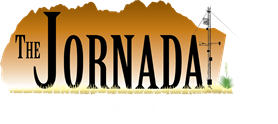Jornada Bibliography
.
2022. Simulated distribution of Eragrostis lehmanniana (Lehmann lovegrass): Soil–climate interactions complicate predictions. Ecosphere. 13(3):e3974.
.
2018. Regional grassland productivity responses to precipitation during multiyear above- and below-average rainfall periods. Global Change Biology. 24:1935-1951
.
2021. Predicting the geographic range of an invasive livestock disease across the contiguous USA under current and future climate conditions. Climate. 9(11):159.
.
2022. Mechanisms and drivers of alternative shrubland states. Ecosphere. 13(4):e3987.
.
2018. An integrated View of Complex Landscapes: A Big Data-Model Integration Approach to Transdisciplinary Science. Bioscience. 68:653-669.
.
2020. Deciphering the past to inform the future: preparing for the next (“really big”) extreme event. Frontiers in Ecology and the Environment. :10.1002/fee.2194.
.
2020. Big data-model integration and AI for vector-borne disease predictor. Ecosphere. 11(6):1-20.
.
2015. Forecasting regional grassland and shrubland responses to directional changes in climate using multi-year dry or wet periods. LTER 2015 All Scientists Meeting .
.
2019. Using machine learning to model complex landscapes: predicting the geographic range of Vesicular Stomatitis across the western United States. Ecological Society of America Abstracts.
.
2018. Regional telecoupling and impacts of wet periods across the Chihuahuan Desert of the United States and northern Mexico. Ecological Society of America.
.
2018. Invasive Plant Expansion on Spatially Heterogeneous Landscapes: Hot Spots and Hot Moments. Ecological Society of America.
.
2016. Integrating legacy data to understand agroecosystem regional dynamics to catastrophic events. American Geophysical Union Fall Meeting .
.
2020. Harnessing the power of AI technologies for ecology: Grass recovery in shrub dominated landscapes. Ecological Society of America.
.
2015. Forecasting regional grassland and shrubland responses to directional changes in climate using multi-year dry or wet period. 2015 LTER All Scientists Meeting.
.
2015. Explaining abrupt spatial transitions in agro-ecosystem responses to periods of extended drought. 2015 LTER All Scientists Meeting.
.
2015. The ecology of catastrophic events: understanding abrupt spatial transitions in susceptibility of grasslands and croplands to multi-year drought. 100th Annual Meeting of the Ecological Society of America.
.
2015. Can we use the past as a lens to the future? Using historic events to predict regional grassland and shrubland responses to multi-year drought or wet periods under climate change 100th Annual Meeting of the Ecological Society of America.
.
2018. Can connectivity-mediated feedbacks to vegetation explain surprising ecological responses to catastrophic events? Ecological Society of America.



